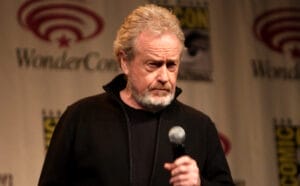How Did Michael Know It Was Carlo?
In the iconic film The Godfather, the character of Michael Corleone becomes embroiled in a web of betrayal within the Corleone family. One of the central figures in this intricate plot is Carlo Rizzi, who proves to be an unexpected traitor.
Carlo, portrayed by actor Gianni Russo, initially appears to be a minor member of the family, overseeing a modest sports book and reporting to the loyal hitman Willie Cicci. However, it is Michael’s keen observation and astute intuition that ultimately lead him to uncover Carlo’s treachery.
It is through a series of events and clues that Michael begins to suspect Carlo’s true intentions. Firstly, Michael becomes deeply troubled by Carlo’s abusive behavior towards his sister Connie, whom Carlo is married to. This abusive behavior is a significant red flag for Michael, as he realizes that Carlo’s desire for power within the family is accompanied by a disregard for the well-being of his loved ones.
Additionally, after the orchestrated assassination attempt on Michael’s father, Vito Corleone, and the subsequent death of his brother Sonny, Michael starts to connect the dots. He comes to the realization that Carlo betrayed Sonny to their rival crime family, the Barzinis.
Instead of immediately revealing his suspicions, Michael adopts a strategic approach. He decides to keep Carlo close, pretending to trust him, all the while gathering evidence of his betrayal. This calculated move allows Michael to ensure his own safety and successfully gather the proof he needs to confront Carlo.
In a climactic scene, Michael confronts Carlo, who eventually confesses to his involvement with the Barzinis. Recognizing the gravity of betrayal within their world, Michael takes swift action, and Carlo meets his demise at the hands of Peter Clemenza.
The revelation of Carlo’s betrayal not only exposes one man’s treachery but also serves as a catalyst for Michael’s transformation. It solidifies his understanding of the treacherous dynamics within the mafia and sets him on a path of ultimate power and revenge as he seeks to secure the Corleone family’s status and avenge the betrayals they have endured.
Continue reading our series on The Godfather to explore other themes of betrayal, honor, and consequences within this iconic mafia saga.
The Role of Betrayal in The Godfather
Betrayal is a recurring theme in The Godfather, highlighting the delicate balance of loyalty within the mafia world. Throughout the film, Vito Corleone, played by Marlon Brando, is tested by those around him, forcing him to question their loyalty and honor. Michael Corleone, portrayed by Al Pacino, also experiences the harsh realities of betrayal as he reluctantly becomes involved in the family business.
In The Godfather, betrayal often stems from personal gain and the pursuit of power. The mobster morality depicted in the film reveals that loyalty and honor are commodities that can be easily discarded when faced with the opportunity for advancement or survival. The characters’ moral compasses are constantly tested, highlighting the treacherous nature of the mafia.
Michael Corleone’s journey exemplifies the complexities of honor and betrayal. Initially distancing himself from the family’s criminal activities, Michael is unexpectedly thrust into a position of power and betrayal when Vito is targeted. As Michael assumes control and seeks revenge, he becomes acutely aware that betrayal can come from even the closest of family members and trusted friends.
Exploring the Depths of Betrayal
The Godfather forces viewers to question their own sense of loyalty and honor as they witness the characters navigate the treacherous world of organized crime. Vito and Michael Corleone’s struggles with betrayal shed light on the fragile nature of trust within the mafia. The film serves as a reminder that in such a world, personal gain and power often override loyalty and honor.
Throughout The Godfather, betrayal serves as a catalyst for the characters’ actions and decisions, with far-reaching consequences. It demonstrates that in the morally ambiguous landscape of the mafia, betrayal is not only expected but can also lead to irreversible outcomes.
As viewers immerse themselves in the world of The Godfather, they are confronted with the harsh reality that honor is often sacrificed for personal gain. The film’s exploration of betrayal serves as a cautionary tale, reminding us that in a world driven by power and ambition, loyalty can be a scarce and fragile virtue.
The Consequences of Betrayal
The consequences of betrayal in The Godfather have far-reaching impacts on the Corleone family, highlighting the treacherous nature of the mafia world. Carlo Rizzi’s betrayal, driven by his desire for power, leads to his ultimate demise and strains the relationship between Michael and his sister Connie. This betrayal exposes the vulnerability and fragility of trust within the Corleone family.
Fredo Corleone’s unintentional betrayal, in his attempt to protect his brother Michael, leads to his eventual isolation and demise. Despite Fredo’s loyalty to the family, his actions and associations with outside forces contribute to his downfall, emphasizing the harsh consequences of unintentional betrayal within the mafia.
The betrayal of Mark McCluskey, the corrupt police captain, not only puts Vito Corleone’s life at risk but also reveals the extent of corruption within the law enforcement system. This betrayal showcases the high stakes involved in maintaining power and loyalty, exposing the intricate and treacherous web cast by competing forces.
Other instances of betrayal, such as Fabrizio’s act of sabotage resulting in the death of Michael’s innocent wife Apollonia, Salvatore Tessio’s betrayal confirming the lack of loyalty within the mafia world, and the ultimate betrayal by Emilio Barzini, further cement Michael’s understanding that trust is a rare commodity. These betrayals serve as cautionary tales, demonstrating the consequences of betrayal and reinforcing the need for vigilance in maintaining power and loyalty.

